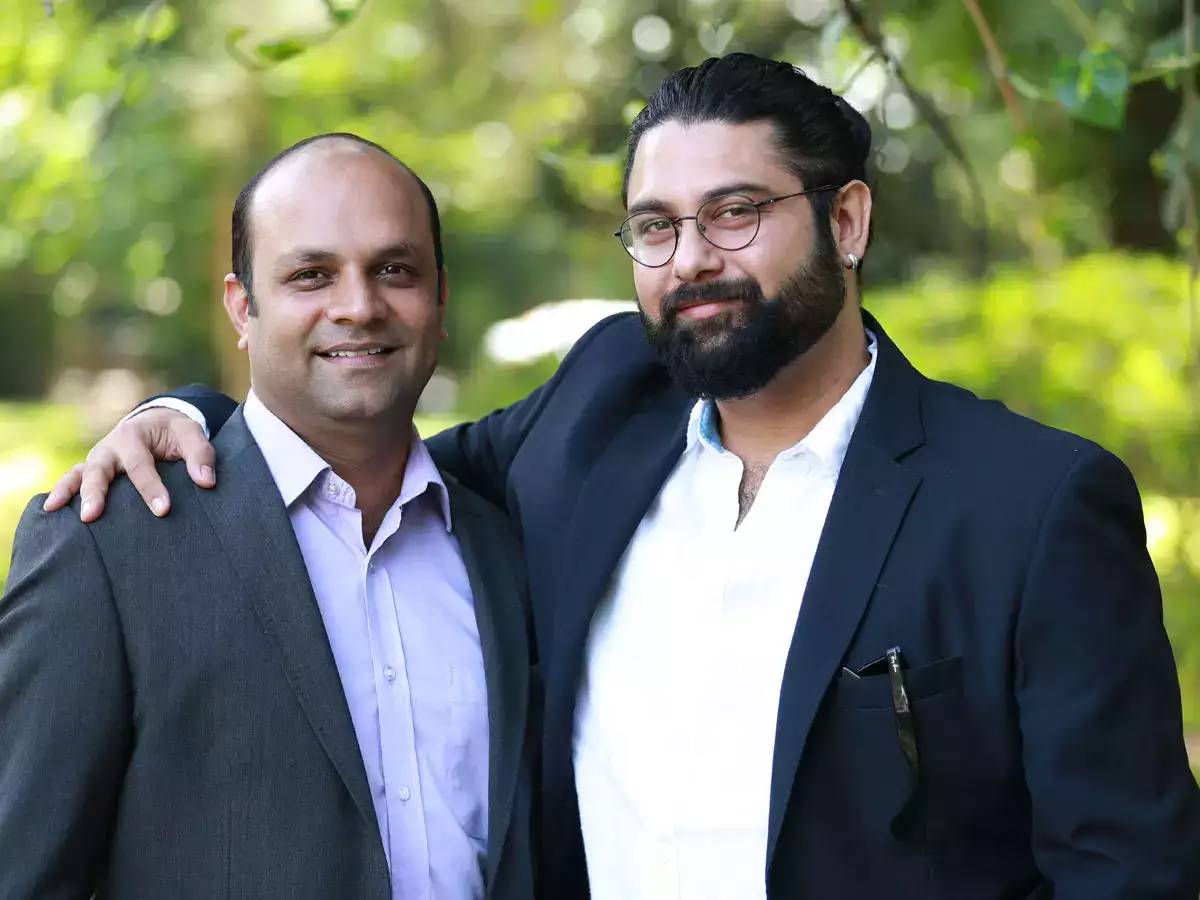BUSINESS
From Chicken Fears to a Feast: The Remarkable Journey of Licious Co-founders Abhay Hanjura and Vivek Gupta

In the realm of India’s poultry industry, where fears and challenges often ruffle feathers, two visionary entrepreneurs, Abhay Hanjura and Vivek Gupta, embarked on a journey that turned adversity into a delectable success story. Their venture, Licious, emerged as a beacon of resilience and innovation, navigating through pandemics and prejudices to redefine the meat and seafood landscape.
In January 2015, when Taiwan and later India faced poultry crises, the ordinary might have balked, but not Abhay Hanjura and Vivek Gupta. Leaving behind secure jobs in 2015, they founded Licious, a meat venture that defied convention. Amidst bird flu fears and later, baseless rumors linking chicken consumption to COVID-19, Licious faced its share of challenges.
Fast forward to March 2020, the pandemic brought unprecedented challenges, and Licious was poised at the crossroads. Contrary to the doom predicted, the meat and seafood brand soared to new heights. With people leaning towards safer and hygienic food consumption, Licious witnessed a phenomenal surge, clocking an astounding ₹600 crore in revenue in the first half of 2020, a staggering 300% increase over the previous year.
Behind this incredible growth lay meticulous planning and strategic moves. The supply chain, a critical component, faced the triple challenge of raw meat availability, factory operations, and safe deliveries. With the initial lockdown causing chaos, Licious reassured its suppliers and partners, ensuring a commitment to quality. They went the extra mile, even airlifting meat to maintain a seamless supply chain. Ensuring the safety of factory workers became the next hurdle. Licious created a bio-bubble, akin to the ones seen in events like the Indian Premier League. Approximately 700 workers were isolated, residing in a hotel with no outside movement, guaranteeing virus-free production. Overcoming consumer fears was key, and Licious succeeded in building trust by prioritizing safety.
The pandemic changed consumer behavior, and Licious capitalized on this shift. Chicken emerged as the highest-selling category during the lockdown, followed by seafood and meat. Monthly orders skyrocketed from 1.50 lakh to a million, showcasing an unparalleled growth trajectory. The brand, with its commitment to quality and safety, plans to achieve a remarkable ₹1,000 crore in revenue by March 2021. Beyond the logistics, Licious co-founders faced societal stigmas associated with the meat business. Black polythene bags, a common sight in butcher shops, symbolized societal taboos. Hanjura and Gupta fought against cultural biases, determined to create a branded identity for meat in a highly unorganized sector.
The Licious journey began with a modest investment of over ₹60 lakh in July 2015, and within months, the platform gained the trust of consumers. Gupta’s venture capital background played a crucial role in strategic expansion. The company consolidated its presence before expanding to cities like Hyderabad, Gurugram, Delhi, and Noida. Operational profitability across all cities marked a significant milestone.
Industry experts note the unprecedented impact of the pandemic on customer acquisition costs, nearly reducing them to nil. High consumer stickiness became a windfall for startups like Licious, as the trial led to sustained user loyalty. The co-founders remain optimistic about achieving ₹1,000 crore in revenue by March 2021, aiming for a day when the symbolic black polythene bag is entirely discarded from the industry.
